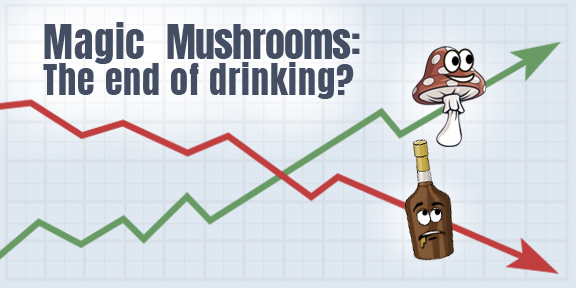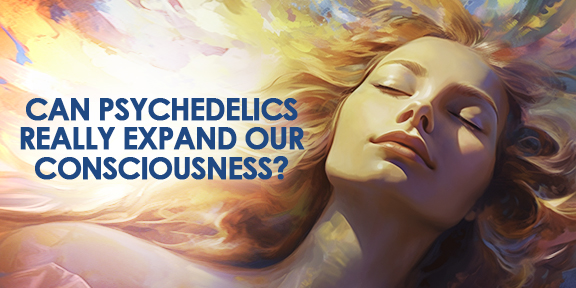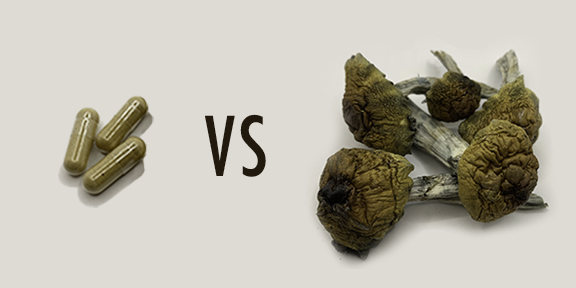Magic Mushrooms: the end of Drinking?

Recently I was chatting with a friend of mine who works in the food & beverage industry and she mentioned that alcohol sales have been noticeably declining over the past 12 months. This got me thinking more about the changing mindset of many people with regards to the use recreational of drugs; namely psilocybin.
Magic mushrooms aren’t just for hippies and festival-goers anymore. As mushrooms have moved into the spotlight in recent years, many people are passing up the bottle and binge-drinking, in favour of taking a handful of magic mushroom capsules to their social outings.
In the majority of cases, when taken in smaller doses (300-500 mg at a time), magic mushrooms can provide a high, without users experiencing heavy psychedelic effects.
While many people have chosen to use psilocybin socially for health reasons, there has been much research suggesting that regular psilocybin consumption can actually lead to reduced alcohol consumption. That’s because, psilocybin, the active ingredient in magic mushrooms, has been clinically shown to reduce people’s cravings for alcohol!
A study published in the Journal of Psychopharmacology found that psilocybin significantly reduced alcohol cravings among individuals who had been diagnosed with alcohol use disorder (AUD). The study included 51 participants who were given 0.3 mg/kg of psilocybin, 1 mg/kg of psilocybin, or a placebo. Participants were asked to rate their craving for alcohol before and after taking the drug or placebo. In addition to this rating, participants were also asked to report any adverse effects they experienced during the study.
The results showed that those who took 100 mg of psilocybin reported significant reductions in their craving for alcohol compared to those who took 0.3 mg/kg or a placebo. There was no difference between groups when it came to adverse effects experienced during the trial. This finding is important because it suggests that psilocybin may be an effective treatment for AUD without many side effects associated with other drugs used for this purpose.
A study published in the Journal of Psychopharmacology found that psilocybin helped participants reduce their alcohol consumption by an average of 60%.
After taking psilocybin, participants reported feeling less dependent on alcohol to have fun or relax, which led them to drink less—even when they weren’t under the influence! The study also found that after taking psilocybin, participants had lower levels of craving for alcohol, felt less depressed, and had higher levels of optimism about their future.
This is exciting because it means we might be able to use psilocybin in the future as a tool for treating addiction. But even if it doesn’t replace all other treatments for alcoholism and substance abuse disorders, it could still be useful as part of an overall treatment plan.
So next time you reach for your favourite fungus instead of a drink, ask yourself, was it really your decision …Or the mushrooms looking out for what’s best?


